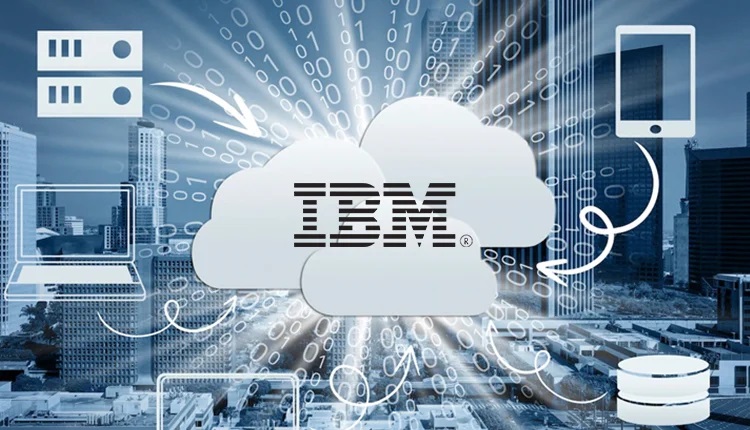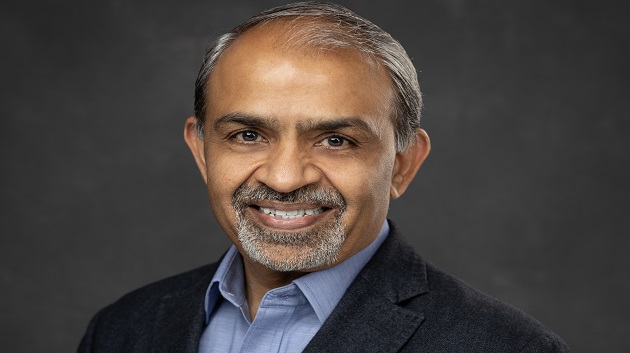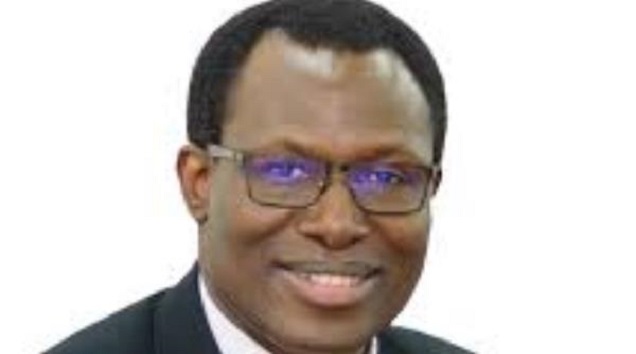Telecom
New IBM LinuxONE 4 Express Provides Client Value through Cyber Resilient Hybrid Cloud & AI Platform

IBM unveiled IBM LinuxONE 4 Express, extending the latest performance, security and AI capabilities of LinuxONE to small and medium-sized businesses (SMEs) and within new data center environments.

The pre-configured rack mount system is designed to offer cost savings and to remove client guesswork when spinning up workloads quickly and getting started with the platform to address new and traditional use cases such as digital assets, medical imaging with AI, and workload consolidation.
Building an integrated hybrid cloud strategy for today and years to come
As businesses move their products and services online quickly, oftentimes, they are left with a hybrid cloud environment created by default, with siloed stacks that are not conducive to alignment across businesses or the introduction of AI.
In a recent IBM IBV survey, 84% of executives asked acknowledged their enterprise struggles in eliminating silo-to-silo handoffs. And 78% of responding executives said that an inadequate operating model impedes successful adoption of their multicloud platform.
With the pressure to accelerate and scale the impact of data and AI across the enterprise – and improve business outcomes – another approach that organizations can take is to more carefully identify which workloads should be on-premises vs in the cloud.
“Startups, entrepreneurs and SMEs are important drivers of economic growth and contribute significantly in driving innovation. The African Union SME Strategy has identified SMEs as a key pillar in private sector-led growth for inclusive and sustainable economic development.
“Technology has the power to unlock great potential, and provide SMEs on the continent with the ability to compete with their global counterparts,” said Julia Carvalho, General Manager for IBM Africa Growth Markets.
“With significant cost savings for startups and SME’s The IBM LinuxONE 4 Express stands ready to scale alongside their growth, accommodating evolving workload demands and performance requirements.
“Moreover, by offering AI inferencing capabilities co-located with critical data, LinuxONE 4 Express enables SMEs to explore and capitalize on emerging AI-driven opportunities empowering them to reach new markets and meet clients where they are.”
Delivering high scalability, availability and security for a range of data center environments and use cases
IBM LinuxONE Rockhopper 4, launched in April 2023 and based on the IBM Telum processor, features capabilities designed to reduce both energy consumption and data center floor space while delivering the scale, performance and security that clients need.
Also built on the Telum processor and delivered in a rack mount format, IBM LinuxONE 4 Express offers high availability for clients who have strict resiliency requirements due to internal or external regulations.
In fact, IBM LinuxONE 4 Express systems, with GDPS, IBM DS8000 series storage with HyperSwap and running a Red Hat OpenShift Container Platform environment, are designed to deliver 99.999999% (eight 9s) availability.
The system addresses a whole new set of use cases that startups and small businesses are facing, including:
- Digital assets: IBM LinuxONE 4 Express provides a secured platform with confidential computing capabilities specifically designed to protect sensitive data, like digital assets. IBM Secure Execution for Linux is a hardware-based security technology that is now built into IBM LinuxONE 4 Express. Scalable isolation for individual workloads can help protect not only from external attacks, but also insider threats. This includes data in use, a particularly critical stage of security for digital assets use cases.
- Medical imaging with AI: With IBM Telum processor on-chip AI inferencing, clients can co-locate AI with mission-critical data on a LinuxONE system, allowing data analysis where the data is located. For example, health insurance companies could analyze large volumes of medical records in near real time to validate process claims, increasing the speed of business decision making.
- Workload consolidation: IBM LinuxONE 4 Express is designed to help clients simplify their IT environments and cut costs by consolidating databases onto a LinuxONE system. Designed to bring significant cost savings for clients over time, clients that move Linux workloads from compared x86 server to an IBM LinuxONE 4 Express can save over 52% on their total cost of ownership over 5 years.
Activating the IBM Ecosystem for client success
With the IBM LinuxONE Ecosystem, including AquaSecurity, Clari5, Exponential AI, Opollo Technologies, Pennant and Spiking, IBM is working to provide solutions for today’s sustainability and cybersecurity challenges. For clients that run data serving, core banking and digital assets workloads, an optimized sustainability and security posture is key to protecting both sensitive private data and sustainable organizational goals. IBM Business Partners can learn more about the skills required to install, deploy, service and resell IBM LinuxONE 4 Express here.
To learn more, join IBM clients and partners on February 20, 2024 at 11 am ET for a deep dive, live webinar on industry trends, such as AI, sustainability and cybersecurity, as well as receive behind-the-scenes access to the new IBM LinuxONE 4 Express system.
Telecom
WhatsApp to Start Showing more Adverts in Messaging App

WhatsApp is launching three new ad features in a global roll-out across the messaging app.

The Meta-owned platform said the new ads will not be shown in the same place as people’s private chats, nor will the contents of their messages – which are encrypted – be used to decide which ads to display.
WhatsApp will instead use the country, city and language of the user, as well as how they interact with other ads and which channels they follow, to drive suggested content.
But people who have chosen to link their WhatsApp account to Facebook or Instagram will see more personalised ads.
The new ad features will appear in a section called Updates, which is a separate tab at the bottom of the app.
WhatsApp claims to have 1.5 billion users globally.
Businesses with channels will be able to choose to promote ads in the Updates section to attract new followers, and also charge a subscription to access extra content.
WhatsApp will eventually take a 10% commission of that fee, and there may also be extra costs on top of that taken at the app store level depending on the size of the business.
Firms will also be able to advertise in the form of a status update, which looks similar to an Instagram story and will link through to start a chat if clicked on.
Social media expert Matt Navarra told reporter that Meta is “laying the foundation for WhatsApp to finally become a monetisable platform at scale”.
But “monetising the periphery” of WhatsApp, while keeping personal chats private, would not be without risk for the company, he added.
This could particularly be the case in markets like the UK and Europe, he said, where the app is viewed primarily as a messaging tool with less appetite for content feeds or adverts.
“Any perception that the app is becoming noisy or Facebook-ified will spark backlash,” he said.
How does WhatsApp make money?
‘Natural extension’
It’s no coincidence that the new features bring WhatsApp more in line with Meta’s other platforms Facebook and Instagram.
“Obviously there’s overlap,” said WhatsApp boss Will Cathcart.
“We have stories on Instagram and stories on WhatsApp, and we now have a way for businesses to promote themselves in both, and we think that’s a good thing.”
He said he believed the move was a “natural extension of messaging services” and not dissimilar to features of rival apps such as Snapchat and Telegram.
For Mr Navarra, it also reflects a wider shift in the social media landscape.
“The feed is dying, public sharing is down, people are retreating into DMs and Stories in small groups,” he said.
“Meta’s trying to turn WhatsApp into a platform without users realising it and if they move too fast or it starts to feel like another ad network, people might disengage or maybe worse, distrust the app.”
Telecom
Airtel Africa Reinforces Commitment to ESG Impact while Advancing Digital, Financial Inclusion Across 14 Markets

Airtel Africa, a provider of telecommunications and mobile money services across 14 African countries, has published its Sustainability Report 2025, reaffirming its corporate purpose of transforming lives by expanding access to essential digital services, supporting inclusive economic growth, and advancing environmental stewardship throughout its operations.

In 2024/25, Airtel Africa made significant progress in bridging the digital divide, advancing financial inclusion and supporting underserved communities through strategic investment in connectivity, people, and sustainable practices.
Airtel Africa’s chief executive officer Sunil Taldar said: “This year’s achievements, from connecting 2,176 schools through the UNICEF partnership to reaching 44.6 million Airtel Money customers with near-gender parity, prove that the power of technology is a catalyst for gender balance. At Airtel Africa, we believe to not only expanding networks but we’re also building bridges to education, financial security and sustainable growth for Africa’s next generation.”
Key ESG highlights:
- Providing underserved communities with access to reliable network and connectivity:
- 2% population coverage across 14 markets (up from 80.4% in 2023/24)
- 36,159 4G infrastructure sites, including more than 15,300 in rural areas.
- Continued investment of $670m in network expansion and modernisation to boost speed, coverage and capacity.
Airtel Africa is connecting the unconnected, giving millions access to voice, data and mobile money services – driving economic opportunity and enhancing access to essential services.
- Bridging the digital divide, driving financial inclusion and addressing gender inequality
- 4 million data customers (+14.1% vs 2023/24)
- 6 million Airtel Money customers (+17.3%), with 44.2% Airtel Money customers who are women (+6.2% vs 2023/24)
- 7 million Airtel Money agents in our distribution network (+23.4% vs 2023/24)
- 2% women in the workforce across the Group (up from 28.3% vs 2023/24)
Through inclusive digital services and affordable financial products, Airtel Africa is empowering individuals and communities, particularly women, to fully participate in the digital economy.
- Unlocking potential through education and employment opportunities
- 2,176 schools connected to the internet free of charge (up from 1,201 in 2023/24)
By providing free connectivity and online resources to schools, Airtel Africa is helping young people reach their full potential. A growing agent network also supports employment and entrepreneurship opportunities across its footprint.
- Minimising the impact of our operations on the environment
- 500 off-grid sites converted to on-grid power, reducing reliance on diesel generators.
- 93% of total waste recycled (+3% vs 2023/24)
Airtel Africa is committed to reducing the impact of its operations on the environment through investment in renewable energy solutions and responsible waste management.
The Sustainability Report 2025 adheres to the Global Reporting Initiative (GRI) and GSMA telecommunications industry standards.
Telecom
ALTON Clarifies on Migration to End-User Billing for USSD Services

The Association of Licensed Telecom Operators of Nigeria (ALTON) wishes to inform the public and all mobile subscribers that the migration to the End-User Billing (EUB) model for Unstructured Supplementary Service Data (USSD) services will take effect from Wednesday, 18th June 2025.

This transition marks a significant milestone in the evolution of Nigeria’s digital financial ecosystem and is being implemented per the Determination of USSD Pricing and Services issued by the Nigerian Communications Commission (NCC).
The Determination was developed in collaboration with the Central Bank of Nigeria (CBN) and other key stakeholders to ensure a sustainable, transparent, and customer-friendly framework for USSD service delivery.
USSD services play a vital role in expanding access to financial services, particularly for unbanked and underbanked populations. However, the previous corporate billing model—where banks were billed by telecom operators—led to prolonged disputes over unpaid charges, service interruptions, and uncertainty for customers.
To address these challenges, the NCC’s 2025 Determination introduced the End-User Billing model, which allows mobile network operators to charge customers directly for USSD sessions.
To achieve the implementation of the EUB model, the CBN and NCC have stipulated that only banks that meet certain regulatory and operational conditions are permitted to migrate. One of which is the notification to customers of the billing change in advance, and to ensure that customers are fully aware of the new airtime-based charges and how they will be applied.
Accordingly, under the new billing model, USSD charges will be deducted directly from the customer’s airtime balance, not from their bank account, and each USSD session will attract a charge of ₦6.98 per 120 seconds. To enjoy the service, customers will receive a prompt to opt in and approve the charge before any deduction is made, and there will be no double billing as billing will only occur for successful sessions via airtime deductions.
ALTON wishes to reiterate that this change does not affect the availability or functionality of USSD banking services, as customers can continue to use their bank’s USSD codes as usual, provided they have sufficient airtime.
To ensure a smooth transition, ALTON advises customers to follow these support guidelines:
–For access issues (e.g., inability to dial USSD codes), contact your mobile network operator.
– For transaction-related issues (e.g., failed transfers or service errors), contact your bank’s customer service.
– Both banks and mobile network operators are required to provide responsive support and mensure that customers can access and use USSD services without disruption.
Alternative digital banking channels such as mobile apps, internet banking, and ATMs remain fully operational and available for customer convenience.
ALTON reiterates its commitment to working closely with the NCC, CBN, financial institutions, and other stakeholders to ensure that this transition is seamless, equitable, and beneficial to all parties, especially the end users.
We remain dedicated to promoting transparency, operational efficiency, and consumer protection across Nigeria’s telecommunications and digital finance sectors.

 News3 days ago
News3 days agoWhy I am vying for AFRINIC board seat in 2025 election – Terry Edet

 Telecom2 days ago
Telecom2 days agoGSMA, Mobile Industry Call for Strengthened Action to Advance Child Online Protection in Africa

 E-Financial3 days ago
E-Financial3 days agoFidelity Bank ED, Kevin Ugwuoke takes over as President of Risk Managers Association

 Telecom3 days ago
Telecom3 days agoCrypto Exchange MEXC Rolls Out P2P Support for Naira, Birr, and Rupee

 News1 day ago
News1 day agoDigital Africa Global Consult, NDPC Partner on Ground-Breaking “Nigeria Data Challenge” Initiative

 General News2 days ago
General News2 days agoTD Africa, HP Strengthen Partnership to Advance Africa’s Tech Ecosystem

 General News3 days ago
General News3 days agoAirtel Concludes Nationwide Environment Week with Market Clean-Up by Employees

 General News3 days ago
General News3 days agoCourt Orders Lawyer to Produce “Bail-Jumping” Client in MTN Cyber Fraud Case


























